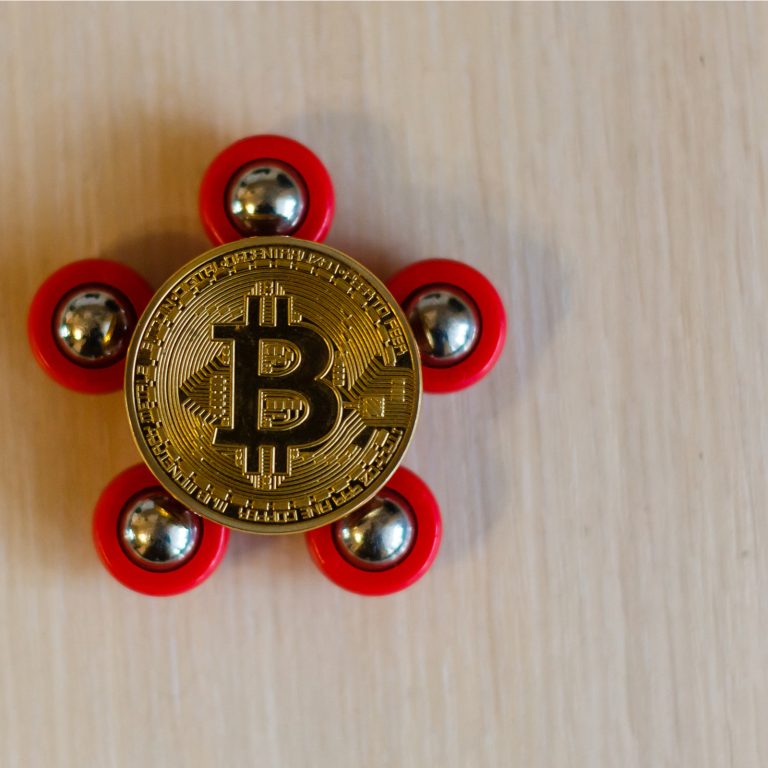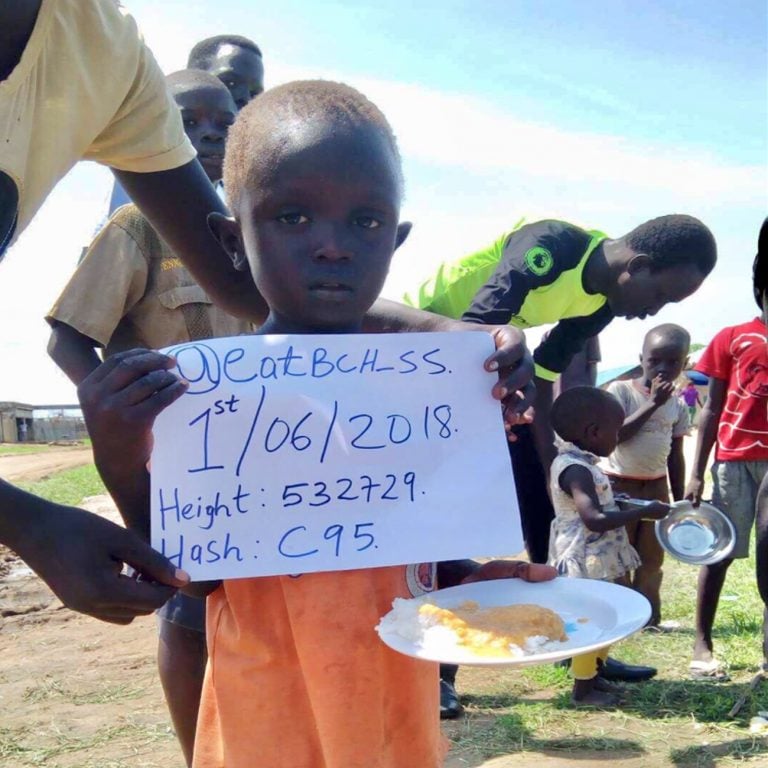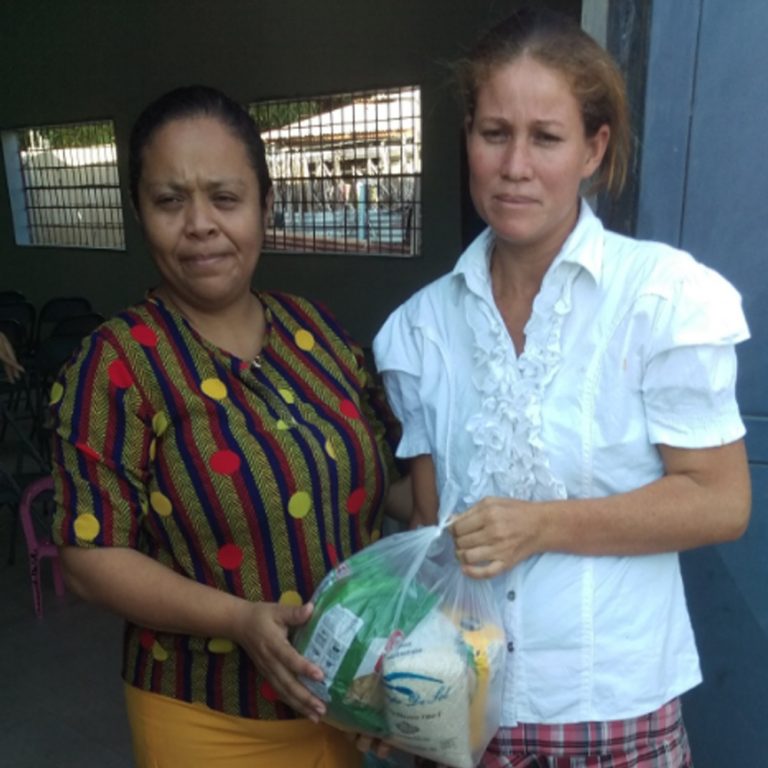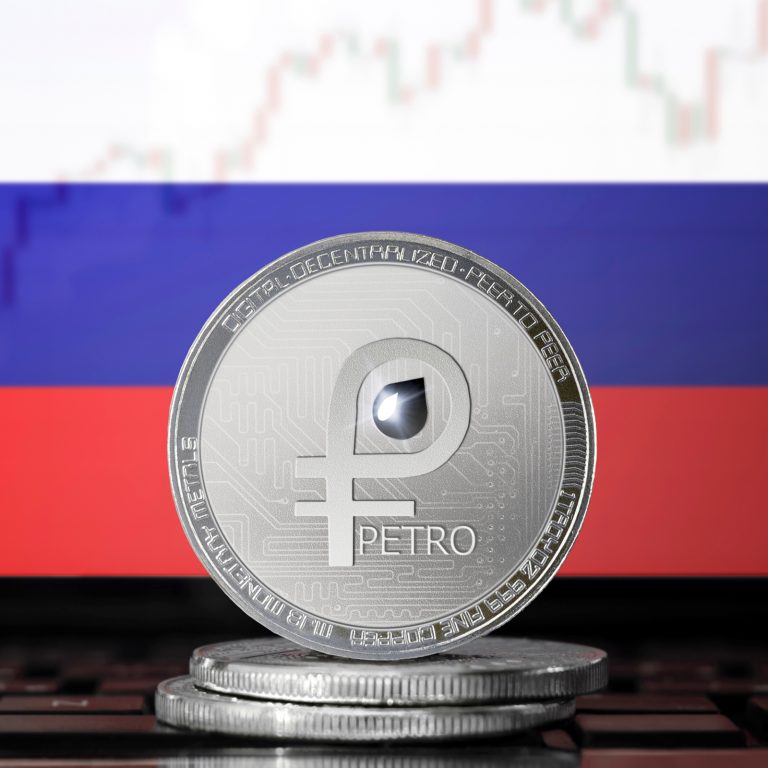 Keywords like „Бiткойн“ (Bitcoin) and „майнинг“ (mining) have climbed to the top 5 of the “What is…” category in Google Ukraine’s 2017 Zeitgeist report, local media have announced. Queries like “Why did gas go up?” and “Why do we live?” also feature high up in the list – the country has been dogged by economic woes […]
Keywords like „Бiткойн“ (Bitcoin) and „майнинг“ (mining) have climbed to the top 5 of the “What is…” category in Google Ukraine’s 2017 Zeitgeist report, local media have announced. Queries like “Why did gas go up?” and “Why do we live?” also feature high up in the list – the country has been dogged by economic woes […]
The post “Bitcoin” And “Mining” Dominate Google Searches as Ukraine Closes in on Legalisation appeared first on Bitcoin News.

Keywords like „Бiткойн“ (Bitcoin) and „майнинг“ (mining) have climbed to the top 5 of the “What is…” category in Google Ukraine’s 2017 Zeitgeist report, local media have announced. Queries like “Why did gas go up?” and “Why do we live?” also feature high up in the list – the country has been dogged by economic woes while fighting a bitter civil war since the “Maidan”. And with Ukrainians anxiously awaiting new legislation to regulate/legalize Bitcoin, “I need a spinner” has also made it to the top of the search engine statistics… Fidget spinners, as we know, have a certain nerve-soothing effect.
Also read: Ukraine Drafts Law to Exempt Crypto Income and Profits from Taxation
Bitcoin Spins Its Way to the Top of Ukraine’s Search Queries
Freedom is taking a toll on Ukraine, both socially and economically, as Kiev steers the boat towards Western ports with its anchor still buried quite close to Russian shores. The country has been reporting unhealthy inflation since the troubles began in 2013. According to the State Statistics Service, consumer prices have increased by 13.6% year-on-year in November (almost 18% for food). Ukrainian GDP growth rate has averaged -0.09% (yes, that’s a minus) for the past seven years, Ukrstat figures show.
Cryptocurrencies present a fresh alternative to the constantly depreciating national currency, the Hryvnia “₴”, as other troubled nations around the world have already discovered. And despite some institutional reluctance, there have been attempts to push through legislation that would legalize and regulate the cryptocurrency ecosphere in Ukraine. Officials hope to attract significant foreign crypto investments to improve the business climate, support the Hryvnia, and increase growth.
Legally, Bitcoin is still in the Twilight
With interest towards cryptocurrencies growing in Ukraine, official Kiev is yet to provide an adequate response to the arising challenges. Currently Bitcoin is neither legal, nor illegal. Its status is still subject to a debate that has been prolonged by the absence of a consolidated government approach. The National Bank of Ukraine has been doing what most central banks in Eastern Europe have – issue strong warnings of the “extremely risky nature” of cryptos that are “definitely not currencies”. Through public statements its representatives have made it clear that Natsbank will follow closely European regulators and the world’s leading central banks to formulate its policy.

Ukrainian media have been wondering whether the bank would do something after regulators in the US accepted bitcoin as a commodity and allowed futures trading. But in the meantime their colleagues in Kiev have narrowed down the alternatives: “They’ve already said that cryptocurrencies are neither digital money, nor securities. Commodities have not been mentioned but they’ve talked about financial assets,” technology entrepreneur and cryptographer Pavel Kravchenko said, quoted by 24 Kanal.
A couple of months ago, though, Ukraine became the first country in the post-Soviet space to draft dedicated legislation to legalize cryptocurrencies and regulate possession, trade, payments and other transactions. No less than three bills have been making their way through Ukrainian parliament since October, as the official website of the legislature shows.
Bills Advancing In the Rada, No Decisions Yet
A Law “On the Circulation of Cryptocurrency in Ukraine” was submitted to the Verkhovna Rada on October 6. Its main purpose is to legalize bitcoin, as reported by Ukrainian media. The draft provides legal definitions of basic terms like cryptocurrency, blockchain, mining etc. It also contains an explicit disclaimer – neither the central bank, nor the executive power in Kiev would bear responsibility or provide protection against any risk associated with cryptocurrencies.
Exchanges, however, will have to implement “know your customer” procedures and maintain comprehensive records of all transactions. The bill also amends the Ukrainian Tax Code, covering another important aspect of the bitcoin legalization process. It adds several paragraphs referring to income from mining operations and cryptocurrency transactions. Initial reports of tax exempts for miners have not been confirmed yet.
An alternative bill “On Stimulating the Market of Cryptocurrencies and their Derivatives” was introduced by Ukrainian legislators on October 10. It expands the legal definitions to cover crypto derivatives, obviously, as well as cryptocurrency investments. The framework proposal, prepared in cooperation with representatives of the bitcoin community, treats cryptocurrencies as “objects of property rights” – a legal status that would allow for barter deals in exchange for other goods and services. A supplementary draft law “On Amendments to the Tax Code of Ukraine (regarding the stimulation of the cryptocurrency market)” has also been submitted by the end of the month.
Completion of Legal Procedures to Take at Least 6 Months
 All three bills have so far overcome major hurdles advancing through parliamentary commissions, including those dealing with financial and banking matters, economic policy, and customs regulation. Members of the European Integration Commission have also discussed the drafts. The cryptocurrency laws have been included in a report that explores the implications of new legislation on the state budget. But the completion of the legal procedures is likely to take at least six months, as the Cabinet of Ministers and the National Bank have to produce their own subordinate statutory instruments to implement the new laws. As it transpires, by the time Ukraine legalizes bitcoin, Russia may have become the first ex-Soviet country to introduce its own version of “legalization”.
All three bills have so far overcome major hurdles advancing through parliamentary commissions, including those dealing with financial and banking matters, economic policy, and customs regulation. Members of the European Integration Commission have also discussed the drafts. The cryptocurrency laws have been included in a report that explores the implications of new legislation on the state budget. But the completion of the legal procedures is likely to take at least six months, as the Cabinet of Ministers and the National Bank have to produce their own subordinate statutory instruments to implement the new laws. As it transpires, by the time Ukraine legalizes bitcoin, Russia may have become the first ex-Soviet country to introduce its own version of “legalization”.
Nevertheless, Ukraine has been the first to target local and foreign crypto investors with incentives, including, but not limited to, lower electricity rates and tax exemption. Both private individuals and corporate bodies will be able to run mining and trading operations and take advantage of them. The scope of the benefits will be determined after the adoption of the main legislation. But even now, foreign nationals willing to invest in Ukraine’s crypto sector can register a limited liability company in Kiev for as little as $100 – Google it! A $100,000 investment will be rewarded with a Ukrainian passport.
Do you think that Ukraine will legalize or ban bitcoin and what do you think the legal status of miners in Ukraine will be? Let us know in the comments below.
Images courtesy of Shutterstock.
Want to create your own secure cold storage paper wallet? Check our tools section.
The post “Bitcoin” And “Mining” Dominate Google Searches as Ukraine Closes in on Legalisation appeared first on Bitcoin News.
 Back in April, news.Bitcoin.com reported on a charity called Eat BCH that’s been feeding the hungry in Venezuela with food purchased with bitcoin cash (BCH) donations. Since then the group has also started feeding people in South Sudan where citizens in the East-African region are suffering from economic turmoil and a lack of daily nourishment. […]
Back in April, news.Bitcoin.com reported on a charity called Eat BCH that’s been feeding the hungry in Venezuela with food purchased with bitcoin cash (BCH) donations. Since then the group has also started feeding people in South Sudan where citizens in the East-African region are suffering from economic turmoil and a lack of daily nourishment. […]



 Over the past few months of 2018 flying under the radar, there’s a new charity aimed at feeding Venezuelan citizens and their children — a group called ‘eat BCH.’ The group has been getting a lot of bitcoin cash (BCH) donations towards feeding the hungry from within the country’s troubled economy. The donations are proving […]
Over the past few months of 2018 flying under the radar, there’s a new charity aimed at feeding Venezuelan citizens and their children — a group called ‘eat BCH.’ The group has been getting a lot of bitcoin cash (BCH) donations towards feeding the hungry from within the country’s troubled economy. The donations are proving […]



 El Petro, the Venezuelan cryptocurrency, can now be purchased with Russian rubles, among other fiat currencies, President Nicolás Maduro announced. Companies from many countries, including the United States, want to buy the oil-backed crypto, he added. Venezuela’s head of state also said he decided to denominate the national currency, the bolivar. Also read: Venezuela Recruiting […]
El Petro, the Venezuelan cryptocurrency, can now be purchased with Russian rubles, among other fiat currencies, President Nicolás Maduro announced. Companies from many countries, including the United States, want to buy the oil-backed crypto, he added. Venezuela’s head of state also said he decided to denominate the national currency, the bolivar. Also read: Venezuela Recruiting […]
 Starting from March 23, all citizens and enterprises will be able to buy
Starting from March 23, all citizens and enterprises will be able to buy  For the first time in years, coins will be minted in Venezuela whose currency has been suffering from hyperinflation. 50 céntimo and 1 bolivar coins will be issued along with 2, 5, 10, 20, 50 и 100-bolivar paper notes. A special emission of bolivars will feature the national heroes
For the first time in years, coins will be minted in Venezuela whose currency has been suffering from hyperinflation. 50 céntimo and 1 bolivar coins will be issued along with 2, 5, 10, 20, 50 и 100-bolivar paper notes. A special emission of bolivars will feature the national heroes 
 Keywords like „Бiткойн“ (Bitcoin) and „майнинг“ (mining) have climbed to the top 5 of the “What is…” category in Google Ukraine’s 2017 Zeitgeist report, local media have announced. Queries like “Why did gas go up?” and “Why do we live?” also feature high up in the list – the country has been dogged by economic woes […]
Keywords like „Бiткойн“ (Bitcoin) and „майнинг“ (mining) have climbed to the top 5 of the “What is…” category in Google Ukraine’s 2017 Zeitgeist report, local media have announced. Queries like “Why did gas go up?” and “Why do we live?” also feature high up in the list – the country has been dogged by economic woes […]

 All three bills have so far overcome major hurdles advancing through parliamentary commissions, including those dealing with financial and banking matters, economic policy, and customs regulation. Members of the European Integration Commission have also discussed the drafts. The cryptocurrency laws have been included in a
All three bills have so far overcome major hurdles advancing through parliamentary commissions, including those dealing with financial and banking matters, economic policy, and customs regulation. Members of the European Integration Commission have also discussed the drafts. The cryptocurrency laws have been included in a 

 In the world of cryptocurrency, there are two main types of ecosystems. Either a cryptocurrency is inflationary – with new coins generated by mining or staking – or it is deflationary. A lot of people claim bitcoin’s deflationary status is a problem, and how minor inflation could alleviate these concerns. However, there are different aspects of either concept that need to be taken into account first. 2. Deflation Most cryptocurrency enthusiasts are well aware of how bitcoin has a fixed supply cap of 21 million coins. It is expected the last bitcoin will be mined around the year 2140, even
In the world of cryptocurrency, there are two main types of ecosystems. Either a cryptocurrency is inflationary – with new coins generated by mining or staking – or it is deflationary. A lot of people claim bitcoin’s deflationary status is a problem, and how minor inflation could alleviate these concerns. However, there are different aspects of either concept that need to be taken into account first. 2. Deflation Most cryptocurrency enthusiasts are well aware of how bitcoin has a fixed supply cap of 21 million coins. It is expected the last bitcoin will be mined around the year 2140, even